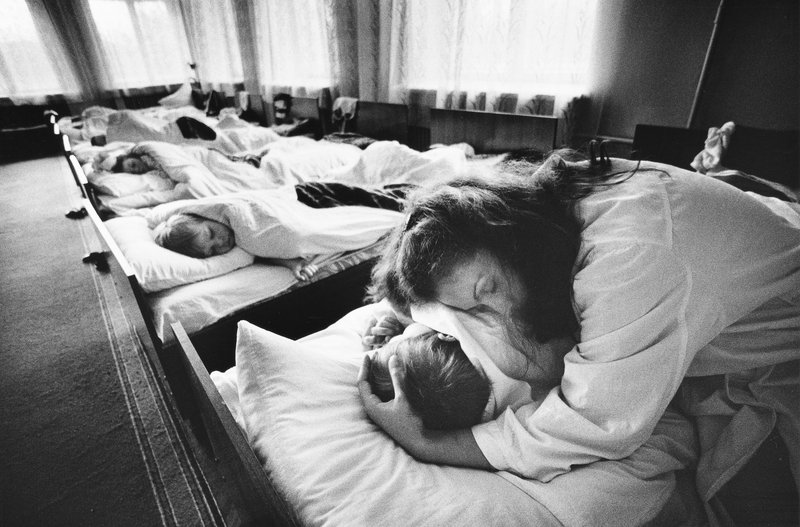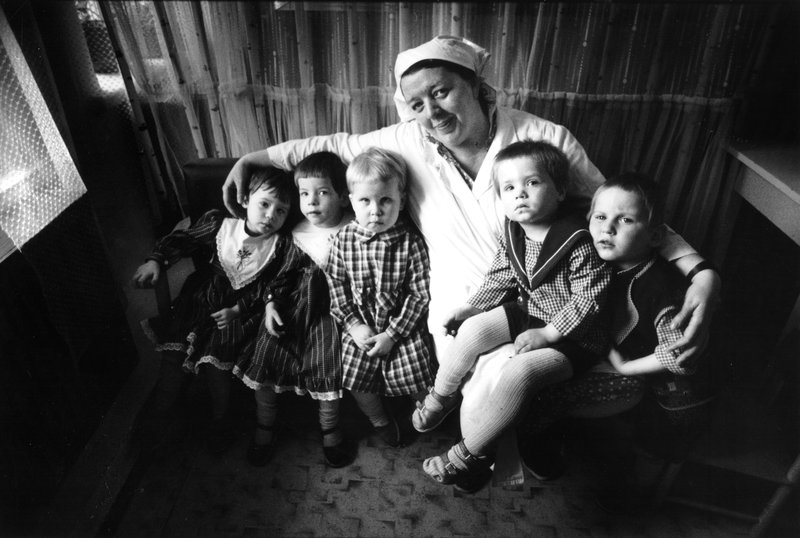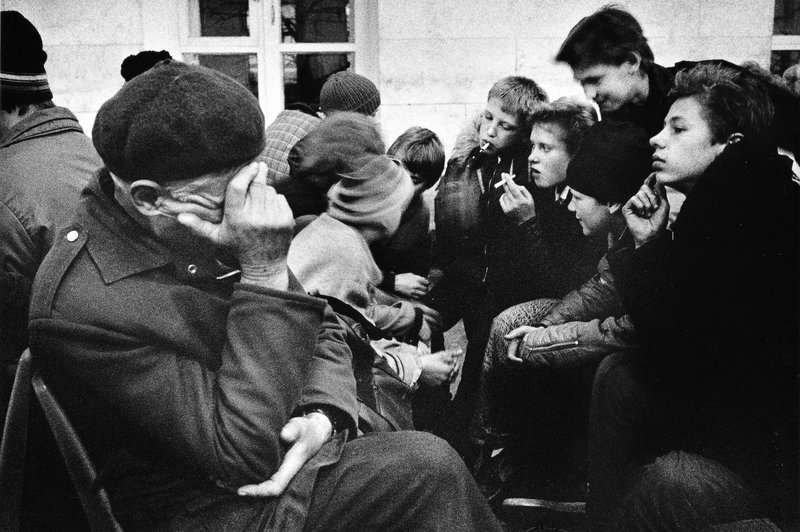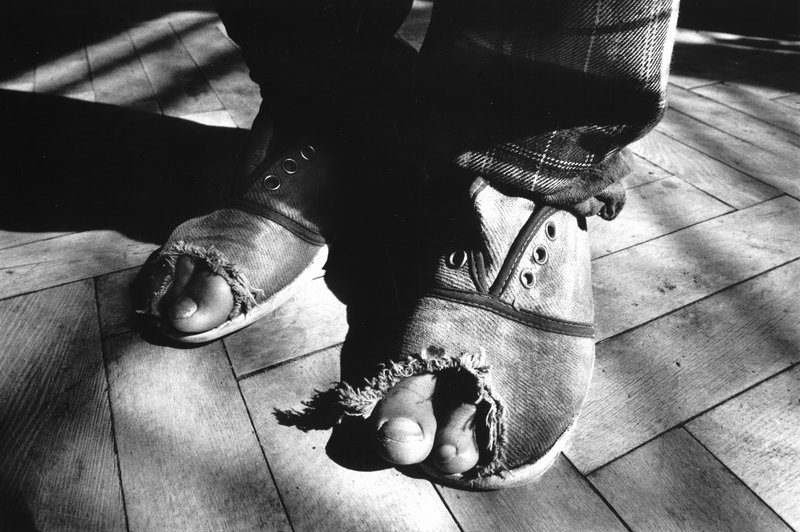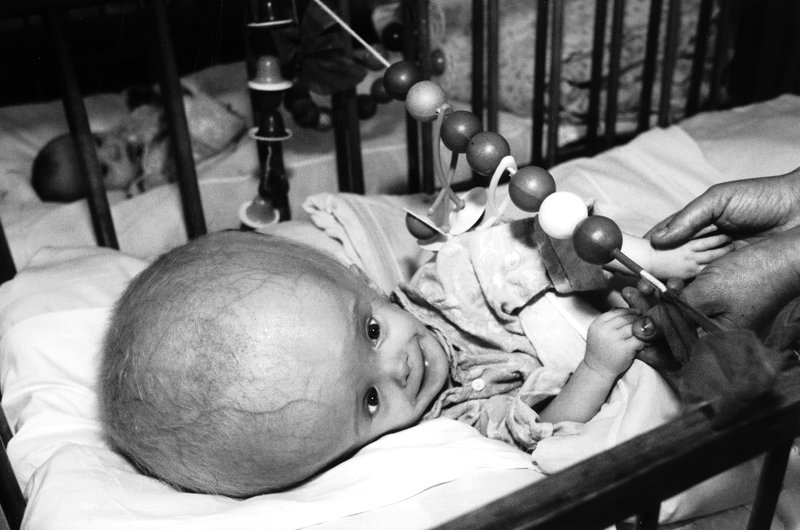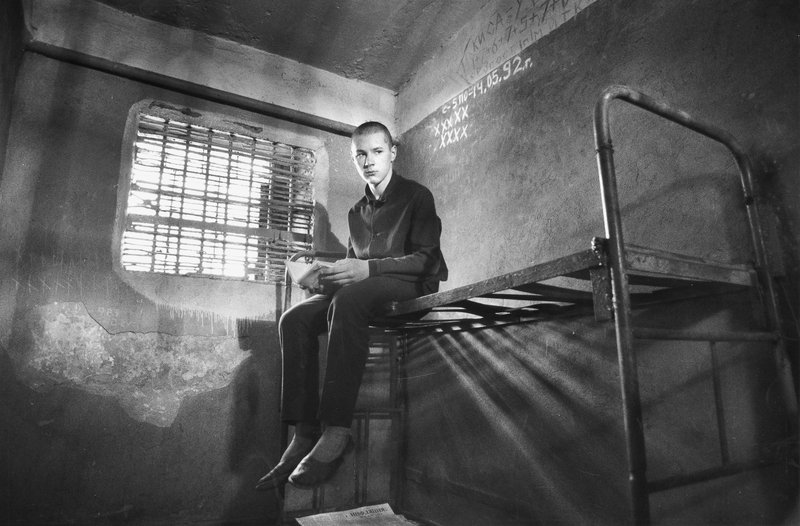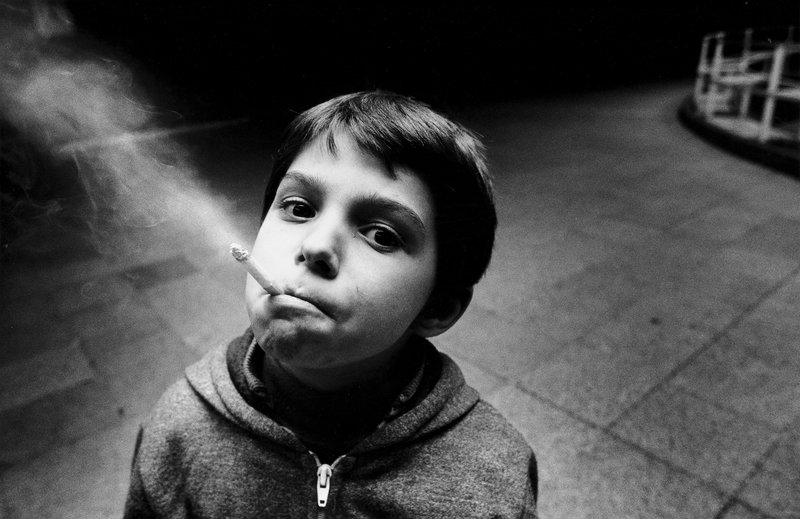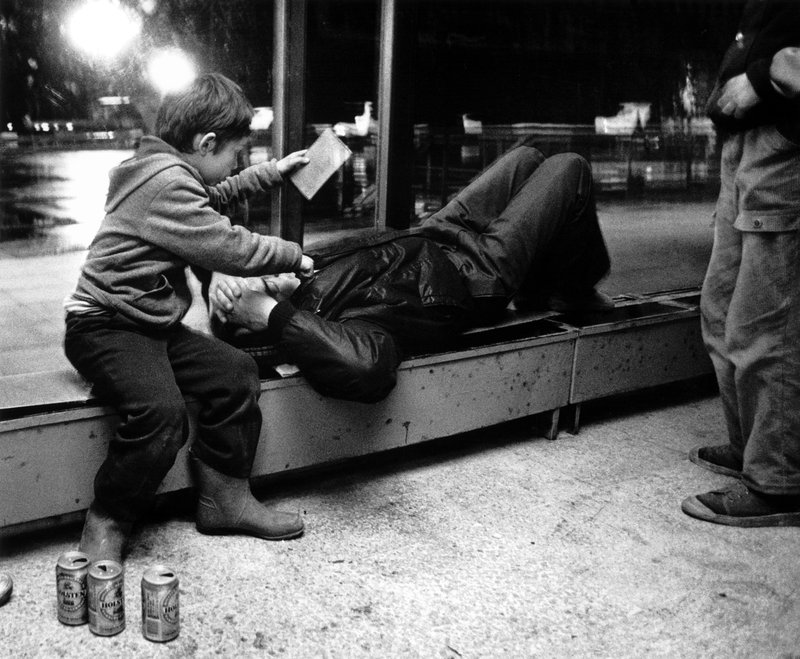John Kaplan: Russia's Ruined Youth
Comfort
An orphanage worker comforts a child at nap time. The lack of food, vitamins and medical care strains both the system and those who work to change it.
RUSSIA’S RUINED YOUTH
by John Kaplan
As the Russian economy crumbles, children are the forgotten victims in a rocky transition toward democracy. Orphanages overflow with children abandoned by parents unable to afford to keep them. Loving conditions for the youngest children decay into often abominable care as orphans become older and are deemed no longer adoptable.
Not likely to be adopted, older orphans often live in squalor. They languish in horrid facilities; some are beaten by their caretakers. Others have been given drugs as a form of punishment. The failings of the Russian social child-care system cause many to run away. By some estimates, in the early 1990s more than 25,000 homeless children live on the streets of St. Petersburg.
Sergei: The Airport is His Home
Sergei Mayorov, 8, has been alone on the street for nearly three years. He says he left home because of his father’s drinking. Like other children who sleep in airports, train stations and abandoned buildings, he steals and begs to survive. Sergei pretends that nothing intimidates him. In truth, he is vulnerable and lost.

